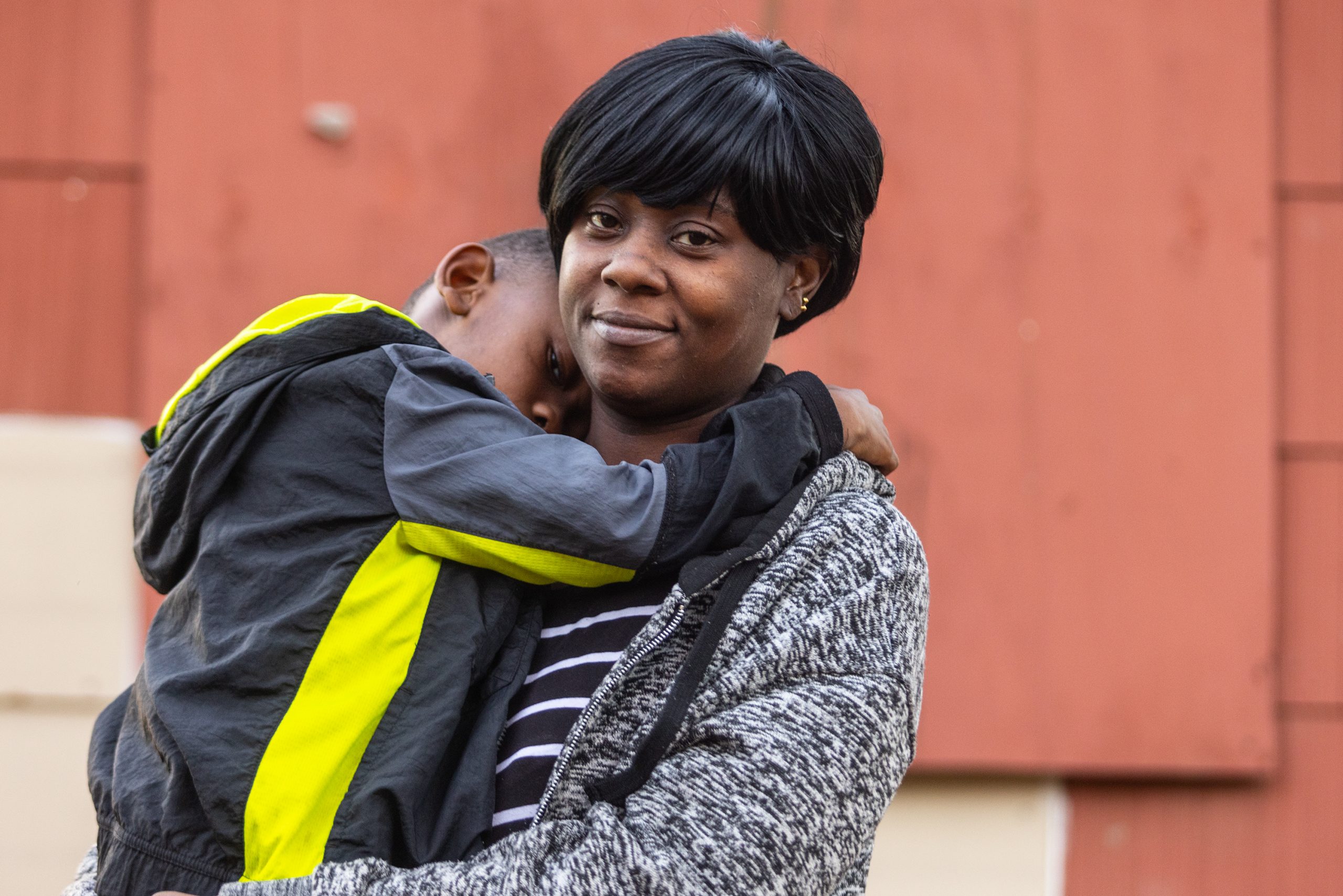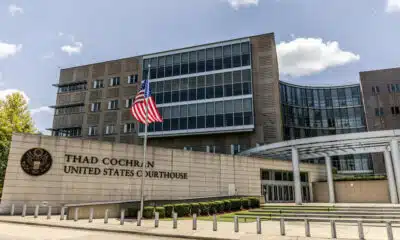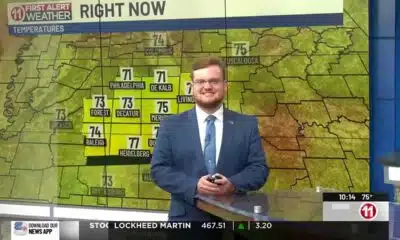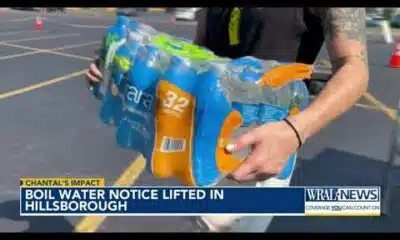Mississippi Today
Welfare recipient won’t stop fighting for ‘decency and common sense’
Welfare recipient won’t stop fighting for ‘decency and common sense’
The state of Mississippi isn’t getting anything past Danielle Thomas.
Thomas is a bright, young single mother raising her six kids in south Jackson. Because she lives in poverty, Thomas is also an expert in the convoluted policies and bureaucratic red tape surrounding one of the biggest scandals in state history: the TANF program.
Despite recent attention on the graft and corruption within the state’s Temporary Assistance for Needy Families block grant, Mississippi is still pumping less than 5% of the money directly to mothers like Thomas.
“I really think it’s still them stealing from people, to be honest,” Thomas, 34, said. “I really feel like they feel like a lot of us aren’t smart enough, or they feel like we probably don’t know the system in and out well enough.”
Thomas works part time as a home health aide earning $9.50 an hour, the same wage she started at 10 years ago. When she’s not on the job, she’s feeding and changing her 5-month-old, ferrying her other kids to and from school, cooking meals, fetching medication, tending to boo-boos, monitoring screen time, and trying to keep the shrieking to a tolerable decibel.
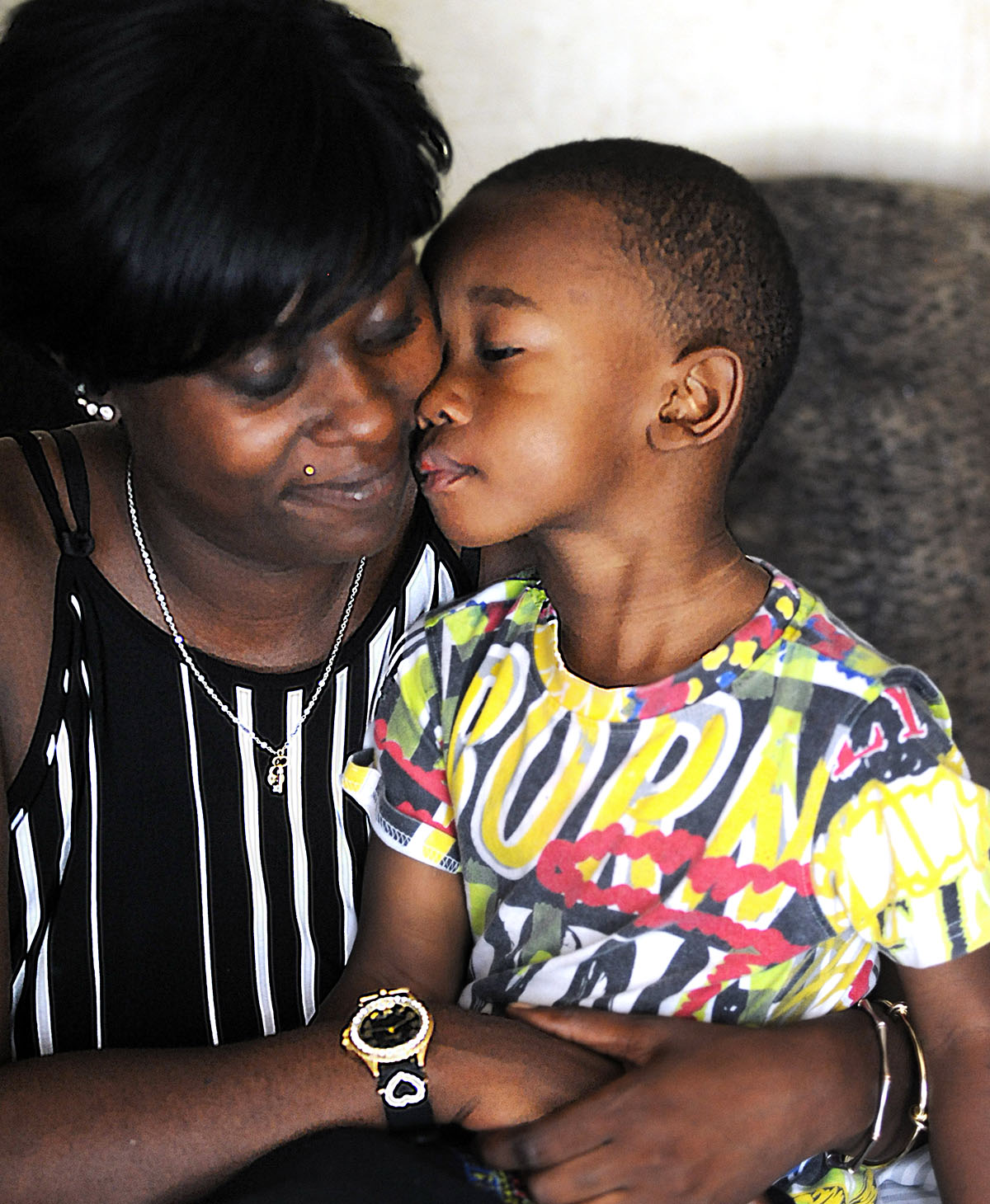
On top of all that, Thomas basically moonlights as the unpaid lawyer, auditor and investigator on her own cases at the Mississippi Department of Human Services and other state service agencies. As most public assistance recipients know, it takes fierce self advocacy to ensure fair treatment within Mississippi’s social safety net.
Only about 1,600 very poor families in Mississippi are successfully jumping through the hoops required to receive the small TANF cash assistance payments each month.
Thomas knows a great deal more about how the TANF program works than the politicians who write the laws that govern the program.
But what happened to Thomas in recent weeks has stumped even the nation’s top policy experts.
In October, Thomas learned that she would be receiving a lump sum of more than $5,000 in back due child support from her ex-husband Larry Young, the father of her four youngest children. The state’s child support office, run by a private contractor, intercepted the money from Young’s child tax credit.
This tax offset process is part of the state’s child support enforcement program that Thomas is required to participate in to keep receiving public benefits. The rationale is, if the state is going to provide taxpayer support to single-parent families, then the noncustodial parents, usually fathers, should be forced to pay up as well.
This is where things get tricky: When the office collects support on behalf of a child receiving TANF, the state then seizes the funds to pay itself back for the welfare payments it issued. Most of that money goes straight back to the federal government.
Thomas said she sees the rationale in this, but at the same time, “I think that’s messed up a lot of co-parenting relationships … it doesn’t help how they think it helps. It kinda actually divides the family a little more.”
Thomas receives assistance from the Supplemental Nutrition Assistance Program, formerly known as food stamps, for all of her children – several hundred dollars a month that comes on a debit card Thomas can only use on qualified items at qualified stores.
But Thomas only receives TANF cash assistance, $118 a month, for each of the two eldest children, not Young’s kids.
This is because of a harsh and little-known rule in Mississippi that if a parent is already on welfare when she gets pregnant and gives birth, that new child is not eligible for TANF benefits. These are sometimes called “capped” children. Just 12 states still have this policy in place, according to a 2020 Center on Budget and Policy Priorities report.
For Thomas, this makes the child support payments for the younger kids all the more crucial.
The $5,000 cash infusion from the tax credit was coming just in time for Christmas. Thomas also planned to use some of the money to replace the radiator fan and valve cover gasket on her 2012 Dodge Durango – long overdue repairs on her only mode of transportation to work and the kids’ schools. Right now, she gets under the hood and manually sets spark to the fan before driving anywhere.
Thomas and her kids survive on the combination of her work income, no more than $13,000 a year, about $900 in monthly Supplemental Security Income, or disability benefits, that Thomas gets for her severe depression and anxiety attacks, and the public assistance. Because Thomas receives disability, she doesn’t receive a TANF payment for herself.
The prospect of a financial cushion provided Thomas some hope, but it was short lived.
In late October, Thomas received the child support payment on her debit card. It was $100.
She called a representative at the child support office, who told her that, according to the computer screen she was looking at, the TANF program had seized the rest.
That’s not how that works, Thomas thought.
“TANF took $5,000 from my kids, but the kids that they took the money from, they don’t receive TANF. They have never received TANF,” Thomas said.
Without the incoming funds, Thomas told her ex she still needed him to help pay for clothes and shoes for the kids. At first, the dad was skeptical that the state had taken the money. The situation caused tension between the parents.
“It makes me feel bad,” Young said. “It’s sad how Mississippi does things, man. Mississippi don’t care about no one, but what they do? Help Brett Favre. Help Phil (Bryant). They don’t help the ones that actually need help.”
Mississippi, which offers some of the lowest wages, strictest public assistance requirements, fewest labor protections and most meager health care of any state is also the most poverty stricken.
But Mississippi politicians have long blamed “fatherlessness” and nonmarital pregnancy for the state’s high poverty rate, ignoring the research that reflects the inverse: that those family outcomes are most often a symptom of poverty – and the feeling that upward mobility is unachievable – rather than the cause of it.
Instead of focusing on evidence-based practices for interrupting systemic poverty, the state has spent hundreds of millions of welfare funds attempting to address fatherhood and teen pregnancy. Along the way, MDHS admits it has gathered no evidence of how these “family stabilization” programs reduced poverty.
Millions through these programs ended up going to the pet projects of former NFL quarterback Brett Favre, other famous athletes and the cronies of state politicians.
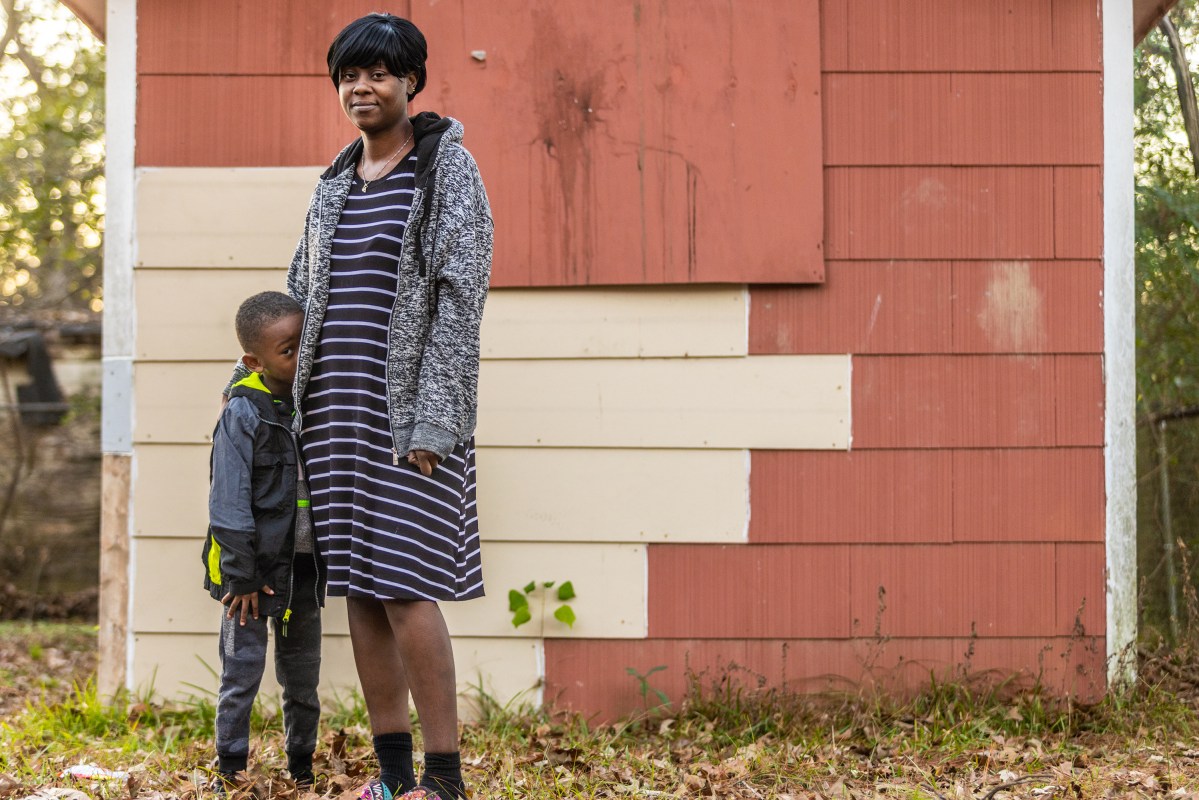
Escaping poverty was always going to be a challenge for Thomas, whose parents split before she could remember. Child Protection Services took Thomas from her mother, who is legally blind and ran an unstable household, when she was 6. She moved with her father to South Carolina until her mom regained custody, and, at 16, Thomas returned to Jackson. She bounced around high schools before dropping out, meeting her first child’s father and becoming a mother.
Thomas secured her GED and has started several higher education programs in the hopes of securing a better paying job, but it seemed like something always got in the way of her finishing. “I start strong, I start motivated, and then I might take a blow from different things and I kind of back out,” she said.
She has prioritized the paying gig that she has versus striving for another because, she said, “I know from experience that if I don’t work, we don’t eat.”
Several years ago, Thomas entered a work program offered through SNAP, the federal food assistance program administered by Mississippi Department of Human Services. It was a 24-week course, she recalled, to learn medical billing and coding – a job in which she could potentially earn $50,000. The program promised to provide her with a certificate at the end.
“During the seventh week, we went in and they told us it was no funds left to be able to continue the program,” Thomas said. “I really felt like it might have been something where they just found a way to reroute the money.”
Like that, the program was over.
During the pandemic, Thomas had to leave her home health job to take care of her kids, who were conducting virtual school at home. She applied for unemployment, which would have provided her an additional $600-a-week, more than she’d ever made and finally a chance to get ahead. But unemployment insurance only covers people who make over a certain amount, and because of her low earnings, the Mississippi Department of Employment Security denied Thomas the benefits.
It appeared a technicality: Thomas didn’t qualify under traditional unemployment insurance rules, but she should have qualified under the special pandemic unemployment program, the purpose of which was to extend benefits to people not typically covered, including part-time workers like herself.
Thomas did her research, appealed the decision, and secured a hearing with the labor office. She even got her employer to corroborate the information on her claim. But after representing herself in the proceeding, she was still denied because she had filed under the traditional unemployment insurance.
Through setback after setback, Thomas doesn’t blame the government for her current situation.
“I’m not a victim because I know the decisions and the choices I have made when it comes to these children and certain things, I’ll take the accountability for. But when it comes to my children … I’d shovel horse manure to make sure my kids eat every night. There’s nothing I wouldn’t do to make sure me and my children have a roof over our head and we have food on the table.”
Then there’s the added stress of raising her children in a neighborhood where gun violence is prevalent. “We’re in an area that’s really crime-ridden. It’s real, real crime-ridden and poverty-ridden,” Thomas said.
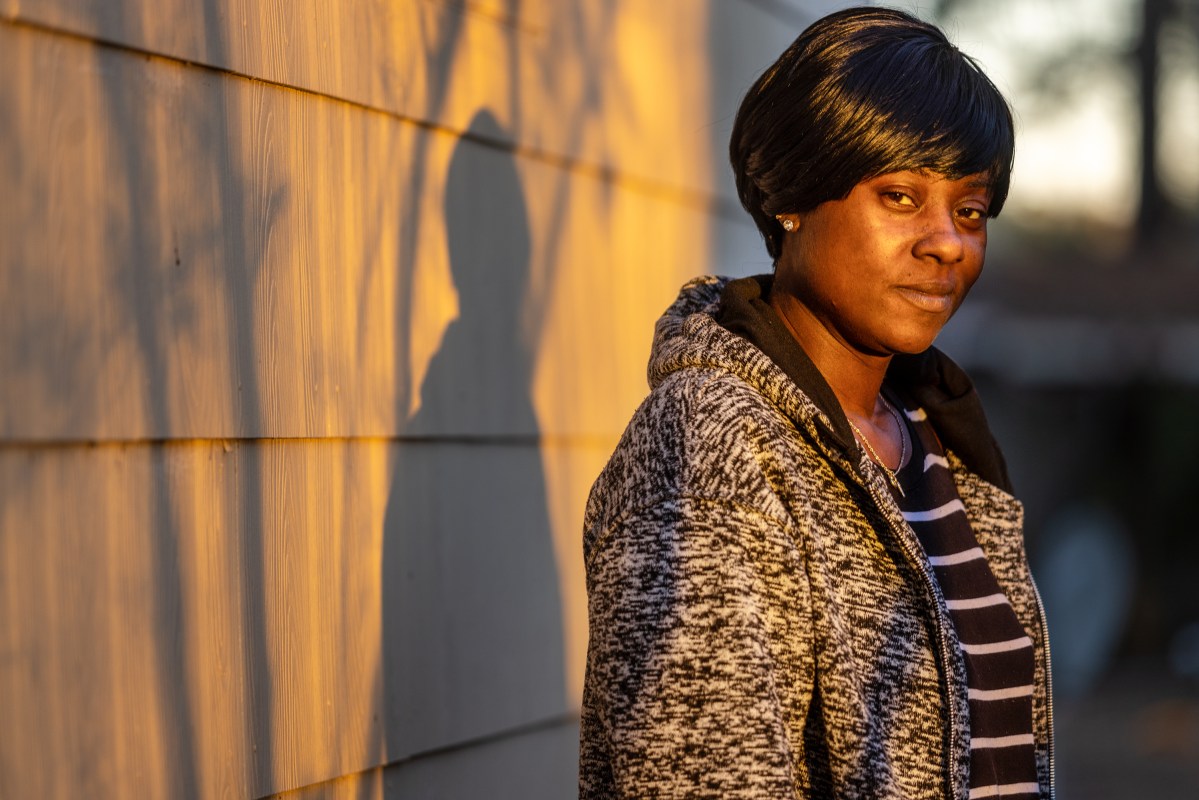
Not too long ago, Thomas’ 9-year-old son found a bag of marijuana on the ground on his way to school. A curious mind, he picked it up and carried it with him to class. When the administration discovered it, Thomas said they almost opened a DHS case, but because she’d been such an attentive parent – attending all parent-teacher conferences and volunteering to bring food for parties – a school administrator vouched for her.
“I’ve been raised in this type of environment … but I don’t wanna repeat cycles. I wanna break generational curses. I don’t want us to be here, but for some reason I feel like I’m stuck, because nothing will come in to allow me to get away from here,” Thomas said.
“Yes, I had all these kids. I made this bed. I have to lay in it,” she said. “But I also know I’m the type of person to where I’m not looking for the government to take care of me and my kids. I can do without, but they also gotta realize the trauma that they have forced upon some of us to where we can’t even live properly. Like, I don’t even like going outside of my home unless I have to.”
In August, State Auditor Shad White, who initially launched the ongoing TANF fraud investigation, released a report demonstrating the cost of “absent fathers” to Mississippi taxpayers. The report focused on how children who grow up in single-parent households are less likely to finish high school, more likely to go to prison and more likely to become teen mothers.
“I’m hoping folks will be informed as taxpayers, but will also realize collectively as a society we need to be sending the message that if you’re man enough to father a child, you ought to be man enough to step up and help raise that child,” White said when the report was released, WXXV reported.
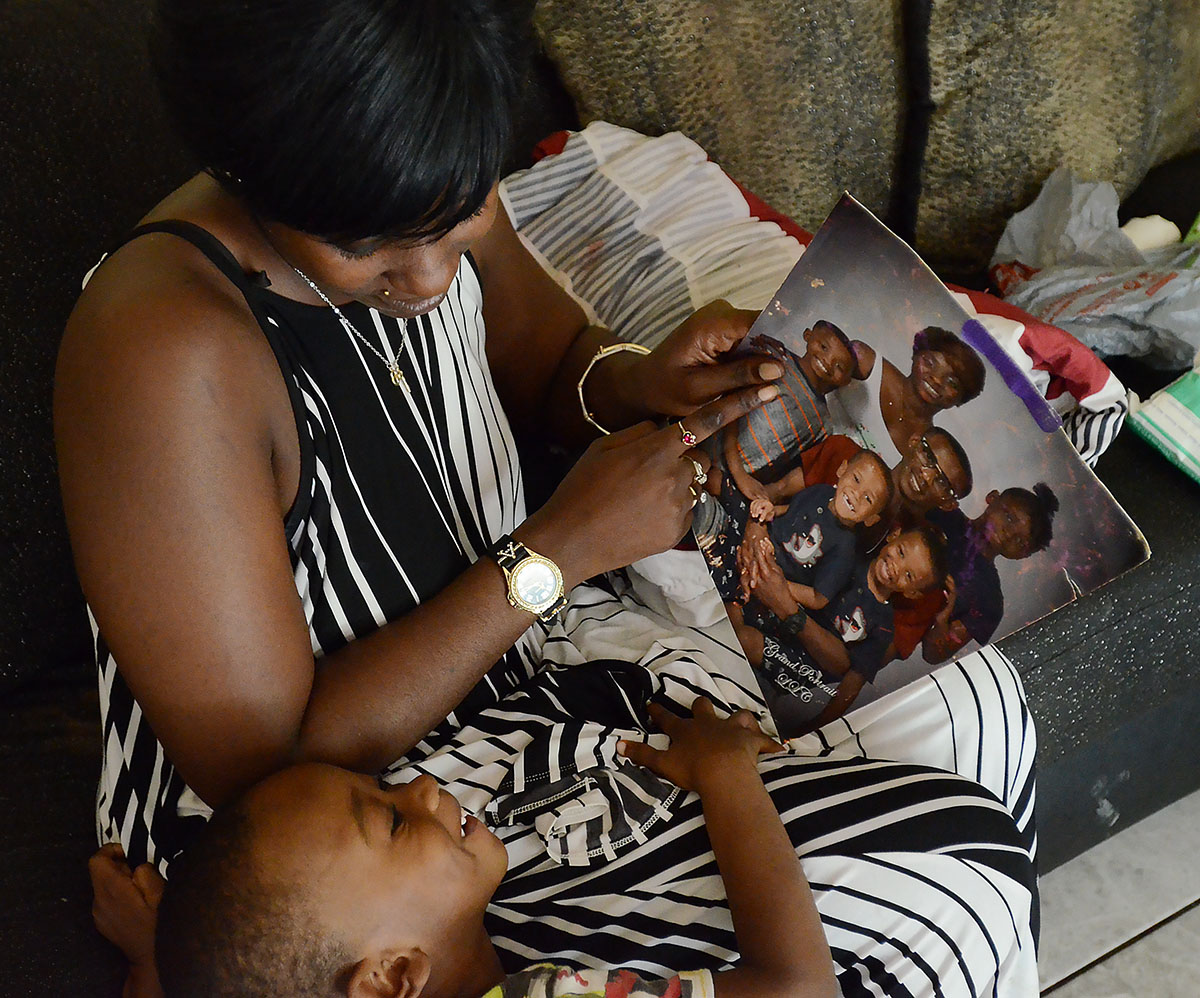
In Young’s case, Mississippi has done nothing to inspire his participation. The state took from him to indirectly support the kids of someone else, while his own kids got nothing.
National policy experts have long advocated against states confiscating the child support payments of poor children to pay back the TANF support they received. They say the practice, which barely makes a difference for states since the money is returned to the feds, keeps families in poverty and harms the relationship between children and their noncustodial parents.
“In this case, it’s even worse: the state is taking money paid by a father for children who the state didn’t even provide assistance to,” said Elizabeth Lower-Basch, deputy director for policy for the Center for Law and Social Policy (CLASP). “While the state may have found a loophole that makes this legal, keeping these funds from Mrs. Thomas and her children is a violation of both decency and common sense.”
Little to no research on this scenario exists. Mississippi’s TANF policy manual doesn’t explicitly address it, according to the reviews of Mississippi Today and two national experts who reviewed the manual at Mississippi Today’s request for this story. It does not come up in exhaustive Q&As published by the federal agency that administers the programs, the Administration for Children & Families under the U.S. Department of Health and Human Services. When asked about what happened, the federal office told Mississippi Today that the agency was following Mississippi state law.
The Mississippi Department of Human Services similarly confirmed in an email to Mississippi Today that this is the agency’s policy.It said it could not comment on Thomas’ case specifically.
“While they (capped children) are not considered in the calculation of benefits, these children are still part of the head of household’s TANF case,” the statement reads. “When there are multiple children in the TANF-recipient household with different non-custodial parents, and one of those non-custodial parents makes a child support payment, that payment is applied to the overall household’s TANF recovery balance.”
It’s a miniscule policy distinction but with substantial implications – as is true with much of the state’s social safety net. The Legislature could change it.
But this area of government is often too complicated, too niche to capture the attention of the public or even policy makers. It’s part of the reason so much corruption was able to occur within the program in recent years.
Without a closer analysis, it’s easy to miss the catch-22.
When it behooves the state to exclude the children, in the case of determining who gets monthly benefits, it excludes the children. But when it benefits the state to count the children, such as to seize their child support payments, it counts them.
MDHS said it did not have any data on how many mixed-family households this policy affects.
Thomas questions it plainly: “I don’t see how one parent can be responsible for what another parent owes.”
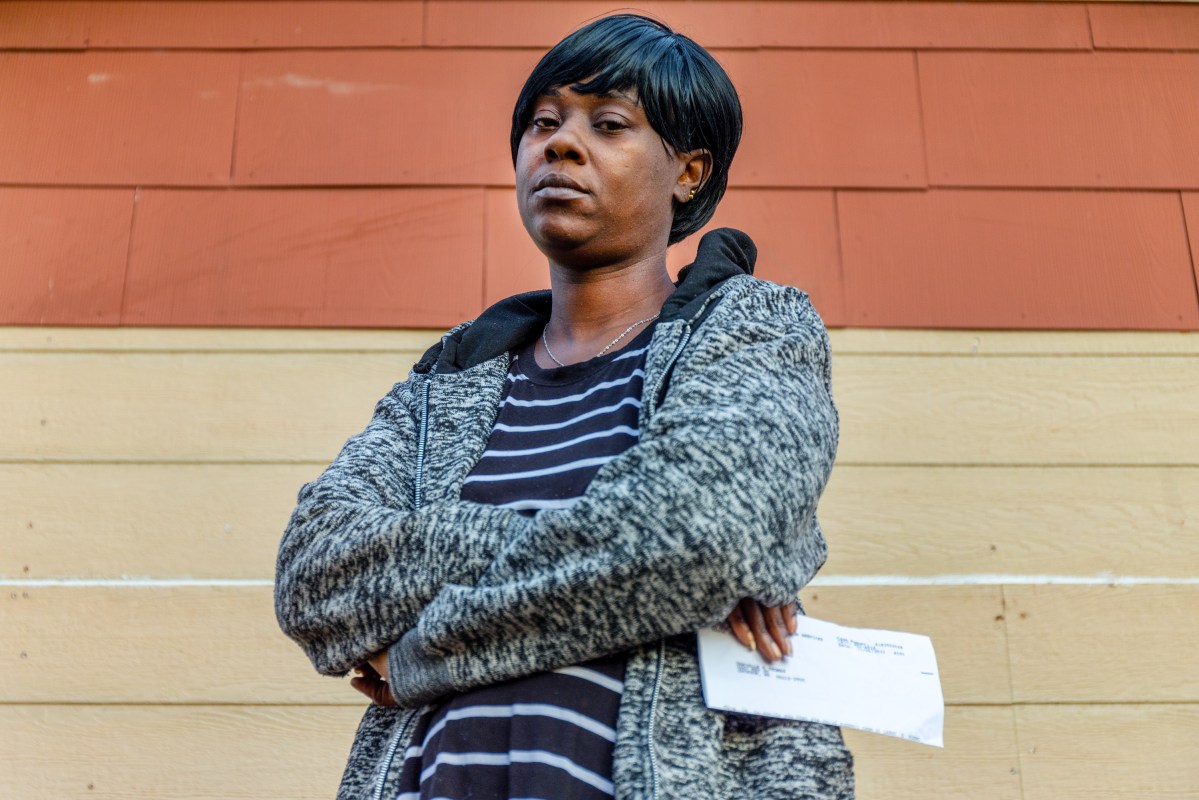
Since the $100 child support payment, Thomas has had countless calls with MDHS, the child support office, and advocates, many of whom told Thomas they’ve never encountered this scenario and that they believed it was a mistake.
When Thomas visited MDHS in person, a supervisor in the office said her TANF case carried an unreimbursed balance of about $17,000 – a mathematical mystery since she’s only received a total of $146-a-month for both children, recently raised to $236-a-month, on and off over the last several years. TANF has a lifetime limit of 60 months. At one point, an MDHS caseworker told Thomas she had been receiving TANF for two children since 2008, before her second child was even born.
“I’ve calculated and added some things up myself and I’m like, you know, ain’t no way,” Thomas said. “… It’s a lot of things I’m not understanding, but I’m really thinking like it is really just (determined by) who reviews your case and files at the time. Like, if you have someone who is reviewing your case who might let some stuff slip through the system.”
Shortly after she began pressing the agency, Thomas found a letter in her mail. It was from the child support office, notifying her that her entire MDHS public assistance case had been closed. This wasn’t true, but it added to her list of issues to resolve. She wondered if her speaking out had triggered this notice.
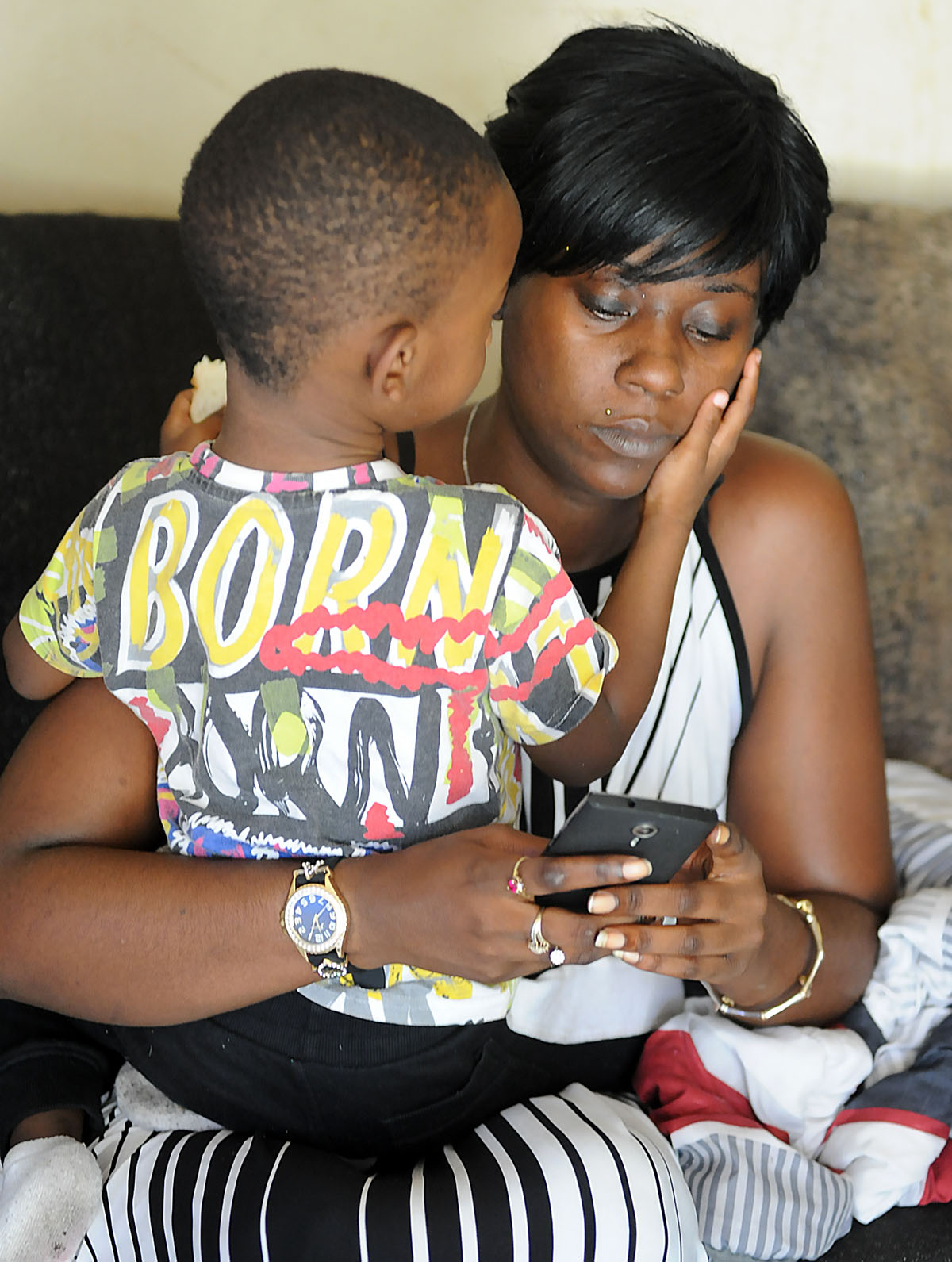
Several days later, Thomas received another letter. This one targeted her 5-month-old, who had barely begun receiving assistance, and ordered Thomas to add the baby to her child support case. The notice said she had 21 days to visit the office and hand over paperwork proving the child’s father or her entire family would be cut off from assistance altogether.
Following Mississippi’s ban on abortion, which led to the overturning of Roe v. Wade, Mississippi Attorney General Lynn Fitch and others have advocated for more strictly enforcing child support. The policy is advertised as a protection for mothers.
But for Thomas, the state’s meddling has only hurt her.
“They usually don’t contact you this early,” Thomas said after receiving the last letter. “I really feel like once again, this has something to do with me going and talking to people about them.”
With about $12,000 in supposed unreimbursed TANF still hanging over her head, it’s questionable if she’ll ever see a dime of child support from any of the three fathers of her children.
By this point, Thomas was dejected.
“I don’t understand how this system works,” she said in a slow, flat voice. “I’m no longer trying to figure out how it works.”
In fact, Thomas understands better than anyone how the system works. It is working the way it was designed, by wearing down the people it purports to serve.
But then, after talking to a free legal aid office, Thomas learned she could request a formal hearing from the TANF office to challenge the paradoxical policy. It’s scheduled for later this month. She’s already downloaded and started reading the agency’s program manuals from its website.
“I’m actually not going to stop fighting,” Thomas said.
In one of her educational stints, Thomas was studying to become a paralegal. When she thinks about going back to school, that’s the career path she envisions.
If her TANF case is any indicator, she’s a natural.
This article first appeared on Mississippi Today and is republished here under a Creative Commons license.
Mississippi Today
Rate decision on hold as Wingate tracks down Siemens funds
U.S. District Court Judge Henry Wingate said he’s putting his decision on hold over whether to approve JXN Water’s proposed rate increase until after he finds out what happened with roughly $90 million from a settlement with Siemens.
In 2020, the city of Jackson settled its lawsuit with the German company over years of faulty metering for water services. While about a third of the $90 million went to legal fees, city officials couldn’t immediately say where the rest of those funds went during a status conference Monday.
City Attorney Drew Martin said he was working to comply with a subpoena Wingate issued last week looking for an accounting of the settlement dollars, adding that he would have those details within a day or two. While he couldn’t say for sure where the money went, Martin said the city spent about $50 million within a few months after the settlement, and that there was $8 million remaining as of 2022.
Ted Henifin, who runs JXN Water and first proposed the rate increase in February, said the increase would still be necessary even if the utility received all the money from the Siemens settlement. He said the utility’s day-to-day management is operating at a deficit, and that the $60 million from the settlement — what Jackson received after paying its lawyers — would only cover losses for the next two years.
Henifin added that he’s asking the federal government to move around its funding to the city so he can spend more of it on operations and management. Without a boost to JXN Water’s finances, he said the utility would have to stop paying its contractors.
Wingate inquired about the settlement money during a two-day status conference last month. Henifin told the judge he had no idea what the city did with the funds. Wingate explained Monday that he wanted to make sure he was aware of all possible funding for JXN Water before approving a second rate increase in as many years.
It’s unclear how soon he’ll decide. In addition to Jackson officials, Wingate issued the subpoena on July 9 to the state and federal government as well as four different law firms. The subpoena gives the parties 30 days to produce any information on where the settlement funds went.
The judge also brought up the city’s history with shutting off nonpaying customers. Martin explained that the city, under then Mayor Tony Yarber, agreed to pause shutoffs for customers who had issues with Siemens’ water meters. Jackson prepared to bring back shutoffs in 2019, he said, but put them on hold again during the COVID-19 pandemic.
This article first appeared on Mississippi Today and is republished here under a Creative Commons Attribution-NoDerivatives 4.0 International License.
The post Rate decision on hold as Wingate tracks down Siemens funds appeared first on mississippitoday.org
Note: The following A.I. based commentary is not part of the original article, reproduced above, but is offered in the hopes that it will promote greater media literacy and critical thinking, by making any potential bias more visible to the reader –Staff Editor.
Political Bias Rating: Centrist
This article maintains a factual, neutral tone focused on reporting the status of a legal and financial issue concerning Jackson’s water utility and the Siemens settlement funds. It presents statements from both the judge and city officials without editorializing or taking sides. The language is straightforward and balanced, emphasizing transparency and accountability rather than ideological framing. The article refrains from promoting any political viewpoint and instead centers on the procedural and fiscal aspects of the case, aligning it with neutral, centrist reporting.
Mississippi Today
Donor aids Civil War battlefield in Vicksburg
Vicksburg National Military Park is receiving over $5 million toward restoring a key monument and removing a building that previously was used as a visitors’ center.
Friends of the Vicksburg National Military Park recently announced a $2.8 million private donation to the park by John L. Nau III, a Texas businessman and philanthropist who was a founding board member of the nonprofit Friends organization.
The National Park Service’s Centennial Challenge program will match the donation with $2.5 million in federal funds.
The money will go to restoring the Illinois Memorial and removing an unrelated building that was “erroneously constructed on core battlefield ground — an intrusion that obscures the story and sacrifices of the men who fought and died there in 1863,” according to the Friends.
“Standing on restored battlefield ground gives visitors a chance to truly understand the story of Vicksburg — not just read about it, but feel it,” Bess Averett, executive director of the Friends of Vicksburg National Military Park, said in a press release. “Visitors deserve to walk this hallowed ground and see it as Union and Confederate soldiers saw it during the siege.”
In 1863, Union forces led by Gen. Ulysses S. Grant laid siege to Vicksburg. After 47 days, the Confederate army surrendered, and the defeat turned the tide of the Civil War as the Union gained control of the Mississippi River.
Vicksburg National Military Park was established in 1899 at the battleground. It commemorates the siege and its role in the Civil War, as well as those who fought.
The Illinois Memorial is dedicated to more than 36,000 soldiers from that state who fought in Vicksburg. Both the stone and the inscriptions inside the building have worn down from weather exposure.
In the release, Friends of Vicksburg National Military Park said the park needs both public and private support, as the National Park Service manages over 400 units nationwide.
“We need donors and volunteers now more than ever before,” Averett said.
This article first appeared on Mississippi Today and is republished here under a Creative Commons Attribution-NoDerivatives 4.0 International License.
The post Donor aids Civil War battlefield in Vicksburg appeared first on mississippitoday.org
Note: The following A.I. based commentary is not part of the original article, reproduced above, but is offered in the hopes that it will promote greater media literacy and critical thinking, by making any potential bias more visible to the reader –Staff Editor.
Political Bias Rating: Centrist
This article presents factual reporting on a private donation to Vicksburg National Military Park without evident ideological slant. The piece focuses on the historical significance of the park, the restoration efforts funded by both private and federal sources, and quotes from a nonprofit executive emphasizing the need for support. The language is neutral and informative, avoiding political framing or partisan commentary. It reports on the actions and statements of involved parties without promoting a particular political viewpoint, adhering to balanced coverage of the subject matter.
Mississippi Today
Coast judge upholds secrecy in politically charged case. Media appeals ruling.
A Jackson County Chancery Court judge is denying the public access to a case that involves several politically connected Mississippians and their failed venture to ticket uninsured motorists using cameras and artificial intelligence.
Media companies Mississippi Today and the Sun Herald have filed for relief with the state Supreme Court, arguing that Chancery Judge Neil Harris improperly closed the court file without notice and a hearing to consider alternatives. The media outlets say the court file should be opened.
Mississippi Today in June filed its motion asking that Harris unseal the case, which he denied six days later.
Gulfport attorney Henry Laird writes in the media companies’ petition for state Supreme Court review, “The Chancery Court sealing the entire court file both before and after Mississippi Today’s motion to unseal the file violates the public and press’ cherished right of openness and access to its public court system and records.”
Mississippi judges have long followed a 1990 state Supreme Court decision that says, “A hearing must be held in which the press is allowed to intervene on behalf of the public and present argument, if any, against closure.”
Instead, Harris said he found no hearing necessary after reviewing the pleadings to open the file. The case, he said, is between two private companies.
“There are no public entities included as parties,” he wrote, “and there are no public funds at issue. Other than curiosity regarding issues between private parties, there is no public interest involved.”
The case involves what is usually a public function: Issuing tickets to the owners of uninsured vehicles. And, according to one party to the case, the Mississippi Department of Public Safety is owed $345,000 from the uninsured motorist program.
READ MORE: Private business ticketed uninsured Mississippi vehicle owners. Then the program blew up.
Since the entire court file is closed, the public is unable to see why the judge sealed the case. The Mississippians said in the Chancery Court case that they have “substantial” business interests to protect and “a lot of political importance,” an attorney opposing them said in a related federal case that is not sealed.
Georgia-based Securix LLC signed up its first Mississippi client in 2021, the city of Ocean Springs, an agreement with the city showed. Securix developed a program that uses traffic cameras, artificial intelligence and bulk data on insured motorists to identify the owners of vehicles without insurance.
To sign on other Mississippi cities, Securix enlisted three well-known consultants, Quinton Dickerson, Josh Gregory and Robert Wilkinson. Dickerson and Gregory are Republican political operatives in Jackson who have run numerous state and local campaigns and advise many of the state’s top elected officials. Wilkinson, a Coast attorney, has represented local governments and government agencies, including the city of Ocean Springs.
MS business partnership sours
In 2023, the Mississippians formed QJR LLC. Their company entered a 50-50 partnership with Securix called Securix Mississippi.
Securix Mississippi sold the cities of Biloxi, Pearl and Senatobia on the uninsured driver program.
Fees collected from uninsured drivers were apportioned to the company, the cities and the Department of Public Safety, the operating agreement with Biloxi showed.
The citations offered three options, according to copies included in a federal lawsuit filed by three Mississippi residents who received them:
- Call a toll-free number and provide proof of insurance.
- Enter a diversion program that charges a $300 fee and includes a short online course and requires agreement that the vehicle will not be driven uninsured on public roadways.
- Contest the ticket in court and risk $510 in fines and fees, plus the potential of a one-year driver’s license suspension.
The Securix Mississippi partnership soon soured.
Securix Chairman Jonathan Miller of Georgia said in a sworn court declaration submitted in the federal case that he was subjected around March 2024 to a “freeze out” by members and/or employees of QJR. They stopped giving him information, Miller said.
The Department of Public Safety in August pulled the plug on the controversial ticketing program, shutting off the company’s access to the insured driver database.
In September, QJR filed its Chancery Court lawsuit against Securix LLC.
What is known about the case comes from documents in the federal court file. QJR claims the company and its members have been defamed by Miller and Securix and wants their 50-50 business partnership dissolved.
The Chancery Court case does not even show up when the parties are searched for by name.
With a case number gleaned from the federal court file, a search of chancery records shows only that the case is under seal.
Normally, when a case is under seal, the docket would still be available. A docket lists all records and proceedings in a case. While sealed records are listed and described, they can’t be viewed.
“There is no court file,” attorney Laird said in asking the Supreme Court to review Judge Harris’ decision to leave the file sealed. “There is no docket sheet. There is absolutely no access on the part of the public or press to their public court file in this case.”
Judge closes file without public notice
All Mississippi court files are presumed open unless they are closed with notice and a hearing under guidelines established in the 1990 case Gannett River States Publishing Co. vs. Hand.
“It appears that the judge ignored what has been settled law in Mississippi since 1990,” said retired Jackson attorney Leonard Van Slyke, who represented Gannett in the case and still advises the media.
He added, “Since that time, there have not been many efforts to close a courtroom or a court file because the rules are pretty clear as to when that can be done. It is obvious from the rules that this would be a rare occurrence.”
A court file can be closed only if a party in the case requesting closure can show an “overriding interest” that would be prejudiced by publicity.
The Supreme Court said in 1990 that the public is entitled to at least 24 hours’ notice — on the court docket — before a judge considers closure. As a representative of the public, the media has a right to a hearing before a court file or proceeding is closed.
At the hearing, the judge must consider the least restrictive closure possible and reasonable alternatives. The judge also must make findings that explain why alternatives to closure were rejected.
The court wrote in Gannett vs. Hand:
“A transcript of the closure hearing should be made public and if a petition for extraordinary relief concerning a closure order is filed in this Court, it should be accompanied by the transcript, the court’s findings of fact and conclusions of law, and the evidence adduced at the hearing upon which the judge bases the findings and conclusions.”
Because Judge Harris held no hearing, the high court will have a scant record on which to base its review. Without a court record, Laird pointed out in his filing, the public can have no confidence the judge made a sound decision.
Kevin Goldberg, an attorney who serves as vice president and First Amendment expert at the nonpartisan, nonprofit Freedom Forum, said the First Amendment guarantees the public access to courts.
In the Securix case, he said, a private business was doing work normally performed by a police department or other public agency, and residents could be snared into legal proceedings when they received tickets and public funds were involved.
“These are not private people in a small town, going about their business,” Goldberg said. “These people’s business is the public’s business . . . I think that means they need to accept that they’re going to be scrutinized all the time, including when they voluntarily make a decision to go to court.”
This article was produced in partnership between the Sun Herald and Mississippi Today.
This article first appeared on Mississippi Today and is republished here under a Creative Commons Attribution-NoDerivatives 4.0 International License.
The post Coast judge upholds secrecy in politically charged case. Media appeals ruling. appeared first on mississippitoday.org
Note: The following A.I. based commentary is not part of the original article, reproduced above, but is offered in the hopes that it will promote greater media literacy and critical thinking, by making any potential bias more visible to the reader –Staff Editor.
Political Bias Rating: Center-Left
This article maintains a largely factual and investigative tone, focusing on government transparency, judicial procedure, and public access to court records. It critiques the secrecy upheld by a judge in a politically sensitive case involving private companies executing public functions, highlighting concerns about accountability and public interest. The framing leans slightly toward advocating for open government and media rights, values often associated with center-left perspectives. However, it stops short of overt ideological framing or partisan language, striving to report the facts and legal context while underscoring the public’s right to scrutiny.
-
News from the South - Tennessee News Feed2 days ago
Bread sold at Walmart, Kroger stores in TN, KY recalled over undeclared tree nut
-
News from the South - North Carolina News Feed6 days ago
Boil water notice lifted in Hillsborough
-
Mississippi Today5 days ago
Hospitals see danger in Medicaid spending cuts
-
News from the South - Arkansas News Feed7 days ago
Arkansas Department of Education creates searchable child care provider database
-
News from the South - Texas News Feed5 days ago
Why Kerr County balked on a new flood warning system
-
News from the South - Texas News Feed6 days ago
Sheriff hints at ‘after action’ review, as records reveal warning of ‘worst-case flood event’
-
News from the South - Arkansas News Feed7 days ago
Arkansas National Guard deployed to Texas to assist in flooding response
-
Our Mississippi Home7 days ago
MDMR-USM Hatchery Training Program Enters Production Phase with Oyster Spawning and Mobile Unit Launch
